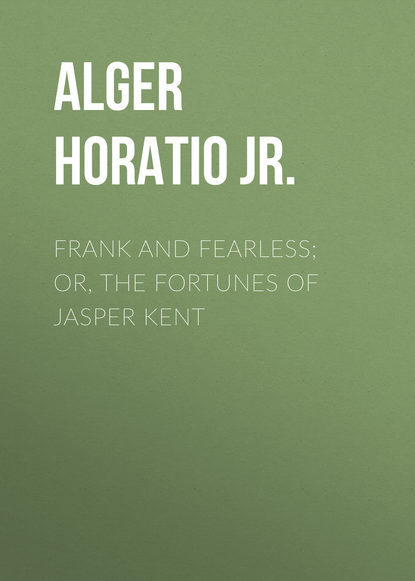По всем вопросам обращайтесь на: info@litportal.ru
(©) 2003-2025.
✖
Frank and Fearless; or, The Fortunes of Jasper Kent
Настройки чтения
Размер шрифта
Высота строк
Поля
"Look in your pockets."
Jasper felt in all of them, but the missing ticket could not be found.
"It may have fallen on the floor," he said, and rising he looked under the seat.
But in vain.
"Did you have any ticket?" asked the conductor, suspiciously.
"Certainly. You have looked at it yourself several times."
"You are mistaken; I got on at the last station."
"I have come all the way from Cincinnati," said Jasper, uncomfortably. "I couldn't have come so far without a ticket. What shall I do?"
"You'll have to pay from the last station to St. Louis."
This was not very agreeable in the state of Jasper's finances.
"How much is it?" he asked.
"Two dollars."
Jasper felt for his pocket-book, when a new surprise awaited him. A look of consternation swept over his countenance.
His pocket-book was gone.
"Don't keep me waiting," said the conductor, impatiently.
"My pocket-book is gone!" exclaimed our hero, gazing in blank dismay at the expectant official.
"What?"
"I can't find my pocket-book."
"Look here, young man," said the conductor, roughly, "that's too thin."
"It's true!" said Jasper.
"It won't go down, young man. I've seen such customers as you before. You're a beat!"
"A what?"
"A beat—a dead-beat, if you prefer it. Off you go at the next station!"
Jasper was greatly alarmed at the unexpected turn affairs had taken.
"Let me go to St. Louis, and I'll get money to pay you."
"It's no use," said the conductor, inexorably. "My orders are strict. If you can't pay, you can't ride."
"But my pocket was picked," said Jasper, new light flashing upon him. "There was a stranger who sat beside me a while ago. He must have taken my ticket and money, too."
"Of course there was," said the conductor, with sarcasm. "That's the way it usually happens. I'm used to such games, young man. It won't do you any good. Out you go!"
"Let me go through the cars and see if I can't find the man that robbed me. I'd know him in a minute."
"Well," said the conductor, relenting slightly, "be quick about it."
Jasper waited for no more. He rose from his seat and, carpet-bag in hand, passed into the next car.
It proved to be the smoking car.
Groups of men were playing cards, and, as Jasper judged, were playing for money. Among them, to his great joy, he recognized his shabby companion, the cotton broker of St. Louis. The latter was playing with three other men, black-bearded, and loud both in their dress and speech.
Without a moment's hesitation Jasper advanced and touched his late companion on the shoulder.
The latter looked up, and without a sign of recognition said:
"What's wanted, sir?"
For the first time it struck Jasper that his errand was rather an awkward one. How could he ask this man if he had taken his property?
"I beg your pardon, sir," said he, "but did you see anything of my ticket and money?"
"What do you mean, stranger?"
"You were sitting by me a little while ago, in the rear car."
"I don't remember it."
"And I thought you might have seen my pocket-book and ticket."
"Well, I didn't," said the other, fiercely. "What made you think I did?"
"I can't find them."
"I don't know anything about them. General, it's your deal."
He turned abruptly away from Jasper, and the boy slowly withdrew to a little distance, sorely puzzled. On the one hand, he felt convinced that this man had abstracted his ticket and money. On the other, he doubted whether it would be safe to charge him with it.
While he was hesitating, the cars began to go more slowly.
The conductor entered the car.
"Have you found your ticket?" he asked.
"No."











